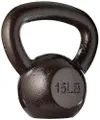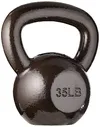
Here at Tom’s Guide our expert editors are committed to bringing you the best news, reviews and guides to help you stay informed and ahead of the curve!
You are now subscribed
Your newsletter sign-up was successful
Want to add more newsletters?

Daily (Mon-Sun)
Tom's Guide Daily
Sign up to get the latest updates on all of your favorite content! From cutting-edge tech news and the hottest streaming buzz to unbeatable deals on the best products and in-depth reviews, we’ve got you covered.

Weekly on Thursday
Tom's AI Guide
Be AI savvy with your weekly newsletter summing up all the biggest AI news you need to know. Plus, analysis from our AI editor and tips on how to use the latest AI tools!

Weekly on Friday
Tom's iGuide
Unlock the vast world of Apple news straight to your inbox. With coverage on everything from exciting product launches to essential software updates, this is your go-to source for the latest updates on all the best Apple content.

Weekly on Monday
Tom's Streaming Guide
Our weekly newsletter is expertly crafted to immerse you in the world of streaming. Stay updated on the latest releases and our top recommendations across your favorite streaming platforms.
Join the club
Get full access to premium articles, exclusive features and a growing list of member rewards.
We know protein is a key macronutrient in any diet — and it’s not just for the bodybuilders. Protein helps build and maintain muscle mass and improves recovery, so whether you enjoy endurance, cardio, running, or HIIT, you can benefit from including plenty of protein in your diet.
However you like to get your protein fix — knocking up your favorite smoothie in one of the best protein shakers or whipping up a high-protein meal — your timing does make a difference. There’s also research suggesting that consuming protein post-aerobic exercise can improve recovery efforts.
Below, we cover if you need more protein after cardio according to research, the best time to consume protein and how much protein you may need to build or maintain muscle.
What is protein?
Your diet is crucial for providing your body with enough protein — a macronutrient responsible for providing the building blocks for muscle growth.
Alongside fats and carbohydrates, protein impacts many bodily processes, including muscle and skin maintenance. It’s formed of chains of amino acids, categorized as essential or non-essential; the essential amino acids can’t be produced naturally by the body, so must be sourced through diet. Think lean meats, eggs, dairy products, fortified products, beans, pulses and so on.
Your body digests protein and breaks it down amino acids, which act as a currency. An amino acid called leucine initiates muscle synthesis, and the supply and demand of replacing amino acids (protein synthesis) is constant, so you’ll need an adequate daily amount of protein in your diet to fuel your muscles properly.
How much protein do you need to build muscle?
During training, you apply stress to your muscles, causing the tissue to break down or microtear. Diet and recovery can help you rebuild and repair muscle, maintaining or building lean mass.
Get instant access to breaking news, the hottest reviews, great deals and helpful tips.
How much protein you need will depend on your workout goals and activity levels. There’s no single magic number to guarantee muscle growth or maintenance, but there are some basic guidelines you can follow.
Whether you’re tracking your macros or not, learning how much protein you need to build muscle or maintain muscle mass is crucial for athletic performance and overall health, regardless of your chosen sport or workout routine.
Factors like age, biological sex, activity levels, genetics, body composition and calorie consumption matter. The Recommended Dietary Allowance (RDA) is roughly 0.8 grams of protein per kilogram of body weight or 0.36 grams per pound to avoid deficiency, and the U.S Department of Agriculture recommends 10% to 35% of daily calories come from protein (1 gram of protein equals 4 calories).
That said, the American College of Sports Medicine recommends between 1.2 to 1.7 grams per kilo of body weight for strength athletes and 1.2 to 1.4 grams for endurance athletes.
Do you need more protein after cardio?
I typically recommend between 1 to 1.5 grams per kilo or up to 2 grams when aiming to build lean muscle mass for the "average person."
An online protein calculator or macro calculator can dial into your individual metrics and activity levels, but aiming for around 20 to 30 grams of protein per meal, spaced out throughout the day, is a good estimate to aim for. But what about after cardio?
What does the research say?
The study mentioned above, published by Medicine and Science in Sports and Exercise, tested male and female athletes across several runs ranging from 5 to 20km across multiple days, asking them to consume amino acid drinks with specified protein figures.
The research indicated endurance athletes who consumed a daily protein intake toward the upper threshold, particularly upward of 1.6 grams per kilo of body weight “maximize whole-body protein synthesis during post-exercise recovery.” It’s more than the “standard” guidelines recommend! The results also suggested this applied to both males and females, although it didn't repeat the test at different stages of the female menstrual cycle.
Because protein consumption can improve muscle repair, maintain and build mass, and aid recovery, consuming higher amounts of protein across the day as part of every meal could aid your athletic efforts, recovery and particularly muscle maintenance for endurance athletes.
If you’re looking for ways to build and maintain full-body muscle mass as a runner, prioritizing your protein intake could help. Remember, “cardio” takes on many forms from HIIT to endurance training, so you’ll need to factor in the intensity and length of your workouts when looking at your individual diet and recovery.
What is the best time to eat protein?
Aim for a minimum of 20 grams of protein per meal spread across the day, preferably within a few hours of either beginning or completing exercise, or both.
Many people have been led to believe protein should always be consumed post-workout to aid muscle recovery. But one study into the effects of protein supplementation suggests consuming protein before exercise could increase protein synthesis.
The total amount is the biggest priority, after all. However, between 60 to 90 minutes pre or 30 to 60 minutes post is a good starting point. You may prefer eating before or after a workout, so learning what to eat before a workout according to a sports nutritionist may help you decide what to prioritize, plus the best time to drink a protein shake if you need some dietary ideas.
Bottom line
Whether you enjoy cardio, endurance training, or lifting weights, consuming enough protein for your individual needs is crucial for maintaining muscle mass and fueling recovery.
If you supplement with protein powders and shakes, just remember that these aren’t properly regulated by the U.S. Food and Drug Administration (FDA), so using natural high-quality sources as your main go-to is ideal and a qualified and registered nutritionist, dietician, personal trainer, or sports nutritionist can guide you more carefully.
We also recommend choosing a high-quality protein powder with upward of 20 grams of protein per serving and “clean” ingredients (as few additives as possible).
More from Tom's Guide
- I took creatine every day for 12 days like Mark Wahlberg, and here's what happened
- Hypertrophy vs strength training: which is better for building muscle?
- No push-ups? Try the dolphin press to strengthen your chest, core and shoulders instead

Sam Hopes is a level 3 qualified trainer, a level 2 Reiki practitioner and fitness editor at Tom's Guide. She is also currently undertaking her Yoga For Athletes training course.
Sam has written for various fitness brands and websites over the years and has experience across brands at Future, such as Live Science, Fit&Well, Coach, and T3.
Having coached at fitness studios like F45 and Virgin Active and personal trained, Sam now primarily teaches outdoor bootcamps, bodyweight, calisthenics and kettlebells.
She also coaches mobility and flexibility classes several times a week and believes that true strength comes from a holistic approach to training your body.
Sam has completed two mixed doubles Hyrox competitions in London and the Netherlands and finished her first doubles attempt in 1:11.
 Club Benefits
Club Benefits















